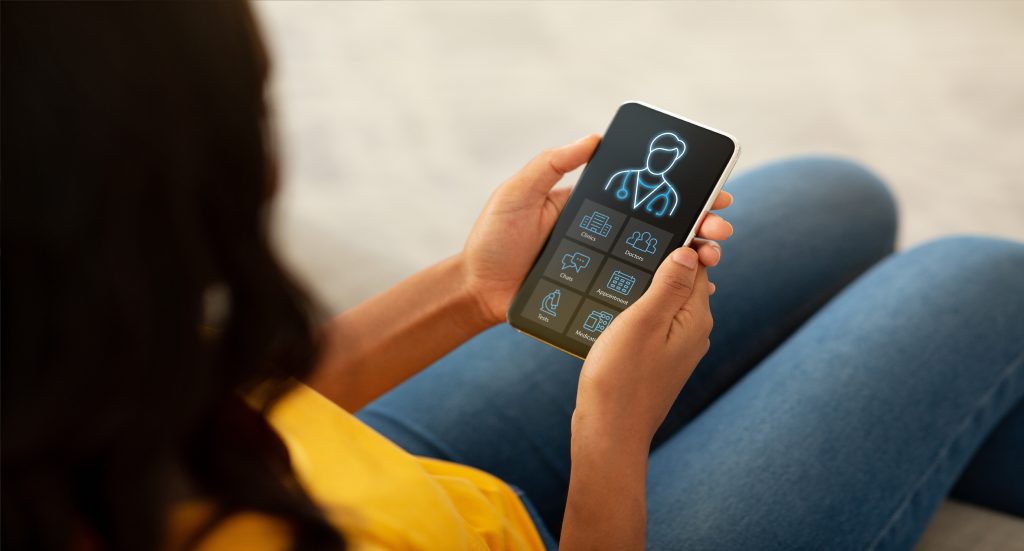
Healthcare mobile apps, integral elements of the mHealth landscape, have become invaluable assets within the sector. These apps significantly improve accessibility and convenience for patients while streamlining processes for healthcare providers. Remote consultations, appointment scheduling, health monitoring, and personalised care plans have transformed the way healthcare services are delivered and accessed.
Remote Consultations and Appointment Management
Healthcare mobile applications have democratised access to healthcare by enabling remote consultations between patients and healthcare providers. Through secure video calls or messaging platforms, patients can seek medical advice, receive prescriptions, and discuss treatment plans. All of that from the comfort of their homes. This approach not only eliminates geographical barriers but also reduces waiting times and the need for in-person visits, particularly beneficial for individuals with mobility issues. Additionally, the integration of mobile apps into appointment scheduling and reminders systems has streamlined the process for both patients and healthcare providers. Patients can easily book appointments, check availability, and receive automated reminders. This feature has proven highly effective in improving appointment adherence rates, optimising clinic schedules, and minimising wait times.
Real-time Health Monitoring and Personalised Health Plans
Mobile applications seamlessly connect with wearable devices for real-time health monitoring, providing valuable insights into patient data. This capability is particularly beneficial for individuals with chronic conditions who require continuous monitoring of vital signs, such as heart rate, blood pressure, and glucose levels. By enabling early detection of abnormalities and facilitating timely interventions, these apps play a crucial role in improving disease management and preventing complications. Healthcare apps leverage individual data to create personalised health plans tailored to the specific needs and goals of each user. These plans often include customised diet recommendations, exercise routines, and behavioural modifications aimed at promoting preventive care and optimising overall well-being. Real-time monitoring and progress tracking empower users to take an active role in their health management, while collaboration with healthcare providers ensures comprehensive and coordinated care.
Healthcare Mobile Apps in Enhancing Mental Health Support
Mobile applications have emerged as essential tools in addressing mental health challenges by providing accessible and convenient support options. These apps offer a range of resources, including therapy sessions, mood tracking, meditation exercises, and stress management techniques. With the anonymity and flexibility afforded by digital platforms, individuals can seek help for mental health concerns without fear of stigma or judgment. These apps often incorporate evidence-based practices and cognitive-behavioural techniques, empowering users to develop coping strategies and build resilience. By promoting self-care and early intervention, mobile mental health apps contribute to destigmatising mental illness and promoting a culture of proactive well-being.
Patient Education and Engagement
Healthcare mobile apps serve as valuable repositories of educational resources, providing patients with in-depth insights into their medical conditions and treatment options. Through interactive multimedia content and easy-to-understand information, these apps allow patients to make informed decisions about their health. Features such as push notifications and in-app messaging facilitate seamless communication between patients and healthcare providers.
At Digitals for Health, we’re committed to crafting intuitive, secure, and scalable mobile solutions. Learn more about our product development services and how we can help bring your healthcare app vision to life.